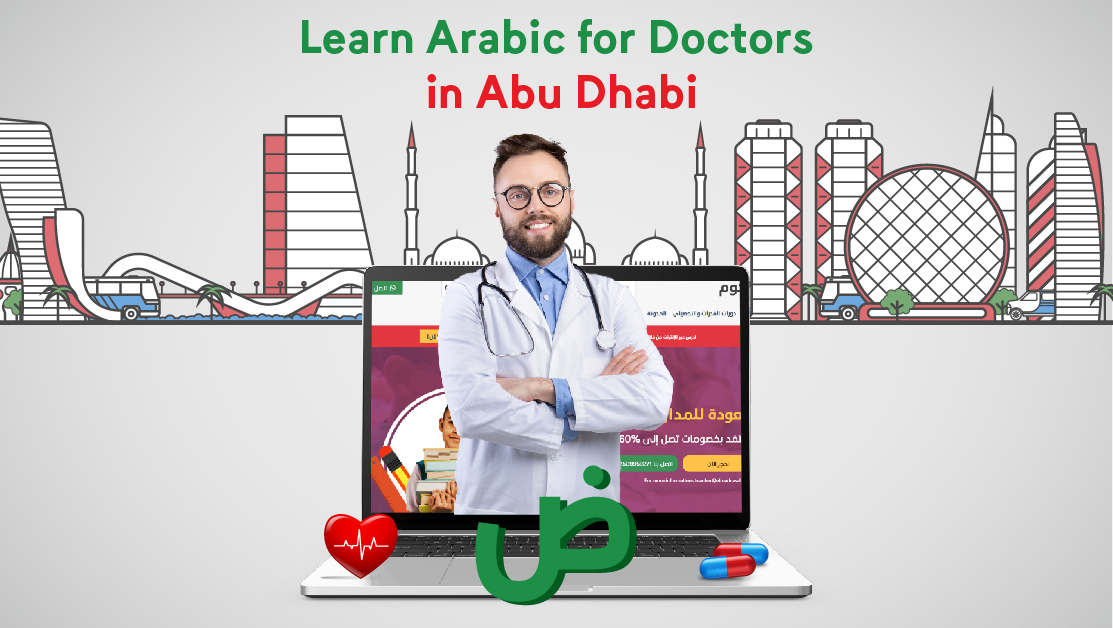
Learn Arabic for Doctors in Abu Dhabi
The Middle East is a hub for medical tourism and as such, there is a growing demand for Arabic-speaking doctors.
Abu Dhabi in particular is a popular destination for those seeking medical treatment.
If you are a doctor who wants to learn Arabic or improve your Arabic skills for work there are many resources available to you.
Here are some tips on how to learn Arabic for doctors in Abu Dhabi:-
1. Join an Arabic class
There are many language schools in Abu Dhabi that offer Arabic classes for non-native speakers.
These classes will help you develop your listening, speaking, reading, and writing skills in Modern Standard Arabic (MSA). Most courses also include cultural lessons to help you better understand Arab culture and customs.
2. Use online resources
In addition to attending an Arabic class, many online resources can be used to learn the language.
Some websites and apps offer interactive lessons, grammar explanations, and vocabulary lists.
Some of these resources to learn Arabic for doctors even allow you to practice your conversation skills with native speakers via Skype or other video chat platforms.
continue Reading Great Tips to learn Arabic
How do learn Arabic for doctors?
If you want to learn medical Arabic for doctors there are a few different things you can do. You can take an online course, hire a tutor or even study on your own.
Here are a few resources to help you get started:
-
Arabic for doctors courses:
These courses are designed specifically for medical professionals who want to learn Arabic. They cover topics such as medical terminology, anatomy, and physiology.
-
Online dictionaries:
A good online dictionary will help you look up words and phrases in both Arabic and English. Try using an online dictionary such as WordReference.com or AlMaany.com.
-
Hiring a tutor:
If you want one-on-one help you can hire a tutor to teach you Arabic.
Tutors can be found through online directories such as Elmadrasa.com.
What is Emirati Arabic?
Emirati Arabic is a variety of Arabic spoken in the United Arab Emirates.
It is also spoken in some parts of Oman and Saudi Arabia.
Emirati Arabic is a dialect of Gulf Arabic, it is also influenced by Bedouin Arabic, Levantine Arabic, and South Arabian languages.
Importance of medical Arabic
The United Arab Emirates (UAE) is a country located in the eastern part of the Arabian Peninsula.
The official language of the UAE is Emirati Arabic, however, English is also widely spoken especially in business and tourism. Arabic medicine is the branch of the Arabic language that deals with the vocabulary and terminology of medicine. It is a relatively new field, and as such, it is constantly evolving. The importance of medical Arabic cannot be overstated, with the increasing number of Arab immigrants in Western countries, there is a growing need for medical professionals who can communicate with their patients in their mother tongue.
Additionally, as the Arab world becomes more industrialized and affluent, there is a growing demand for high-quality medical care, this led to an increase in the number of hospitals and clinics in the Arab countries, as well as an increase in the number of medical schools.
Medical Arabic is important for healthcare providers in the UAE because it will allow them to communicate with their patients more effectively.
The Arabic language is the key to understanding Arabic medicine, which will also help them to understand Arabic medical terms and concepts
It is the trade language of the Arab world and is used by Arabs regardless of their mother tongue. Thus a medical student who knows Arabic will have an advantage in interacting with patients and colleagues from Arab countries.
Read Why learn Arabic in Dubai?
Courses of learning medical Arabic what is?
These courses are designed to provide health professionals with basic Arabic language skills to help them communicate with their patients. The course covers basic vocabulary and phrases in the areas of general greetings, introductions, medical history taking a physical examination, and common illnesses names.
These are courses to learn Arabic for doctors and health professionals who want to improve their communication with Arabic-speaking patients. These courses focus on key medical terminology and communication skills, for health professionals and students who want to communicate in Arabic for daily tasks.
Inquiring about needed services, asking for directions to visit attractions, and giving instructions are just a few topics covered in the course.
The Arabic for medical Arabic course is included:
- Identifying major body parts.
- Referring to organs.
- Explaining the need for investigations and procedures.
- Explaining diagnostic findings.
- Providing information on prognosis and treatment outcomes.
- Advising about drug dosage, and follow-up visits are all part of gathering information about patient complaints and their need for health services.
After this course, students should be able to:
- Converse in Arabic, the language of the Arabian Gulf, in a hospital, clinic, or community health care center.
- Get a basic understanding of Arabic writing and reading.

















